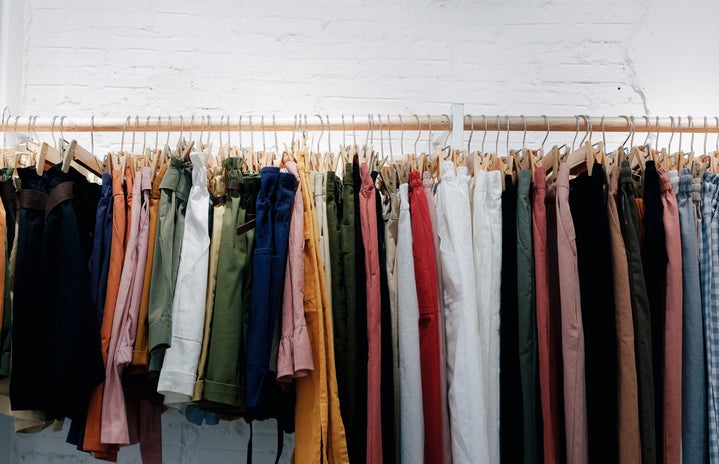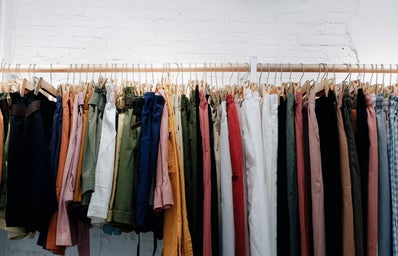“Huge Haul!”
“Things you need in your closet this season!”
“Don’t walk, run to get this!”
“200 Dollar Shein Haul!”
If you open TikTok, odds are you will see one, or more, of these titles on your For You page. They are usually videos of people showing their recent purchases from cheap, fast fashion stores that are rising in popularity. Now, if you are like me, you have watched many of these hauls with envy. You start thinking to yourself, “I do need that,” or “I wish I had those things,” and you might even find yourself placing your own giant online order. While the idea of buying new things, and seeing other people buy new things, is fun, the effect these videos are having is enormous. They are leading to a rise in consumerism, which is causing an impact on our environment, and not a good one.
Consumerism can be defined as, “An economic and social system that encourages the consumption of goods and services as a means of attaining well-being” (Hayes, 2022). These massive hauls on the Tik-Tok app push the idea of overconsumption by making it seem normal to always be buying more. There are accounts on the app solely dedicated to pushing out these haul videos. These videos cause people to order things that they don’t need, and in turn, end up throwing them away after one wear or less. In podcast episode 56 from season four of The Conscious Style Podcast, fashion psychologist Dr. Dion Terrelonge explains how people have stopped seeing the value in clothing, and how articles of clothing are often seen as “single-use items.” This leads to massive amounts of waste going into our landfills. In an Instagram post on an account called Impact from October 17, 2022, environmental writer Micah C. writes that about 92 million tons of clothing end up in landfills every year, which is the equivalent of one garbage truck a second.
The impact this has on the environment shows up in many ways. One way is the immense amount of water it takes to create these clothes. If you look up the statistics on how much water it takes to make one item of clothing, you will be shocked! Fast-Fashion is also the main contributor to global carbon emissions, more than airplanes or ocean transportation. Making these clothes also releases tons of microfibers into our oceans, which is like throwing millions of plastic water bottles in there. And all of this damage for what? A few likes, and a passing moment of fun?
As a struggling college student, I understand the draw of these fast fashion companies’ prices. Being able to buy multiple items of clothing at once for a low price is something that I have once fallen prey to. However, making it a trend to overindulge, and spend hundreds of dollars on these websites in order to do a haul is something that needs to be stopped. Even now, we have major creators with money, shopping at these fast fashion companies just for a video. The problem is not in people buying one or two items to add to their wardrobe, it’s this idea that we must always be buying the newest thing, buying what we see others buying, and overall overconsuming these products.
So what can we do? Better alternatives to fast fashion include buying clothes secondhand, supporting businesses that are environmentally conscious, and only buying clothes that we need. Remember fashion will come and go, but the damage to our environment is forever.
I also want to acknowledge that these fast fashion companies create many other major problems not mentioned, such as the exploitation of their workers, and I urge you to research that as well.
Linked below are the sources mentioned as well as other resources to learn more about the fast fashion industry’s impact on the environment:
https://www.investopedia.com/terms/c/consumerism.asp


